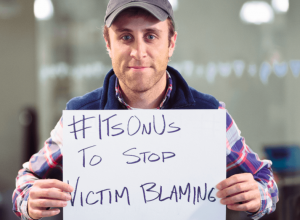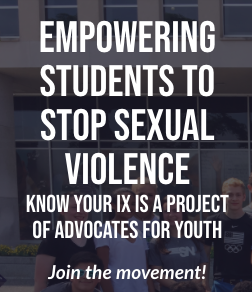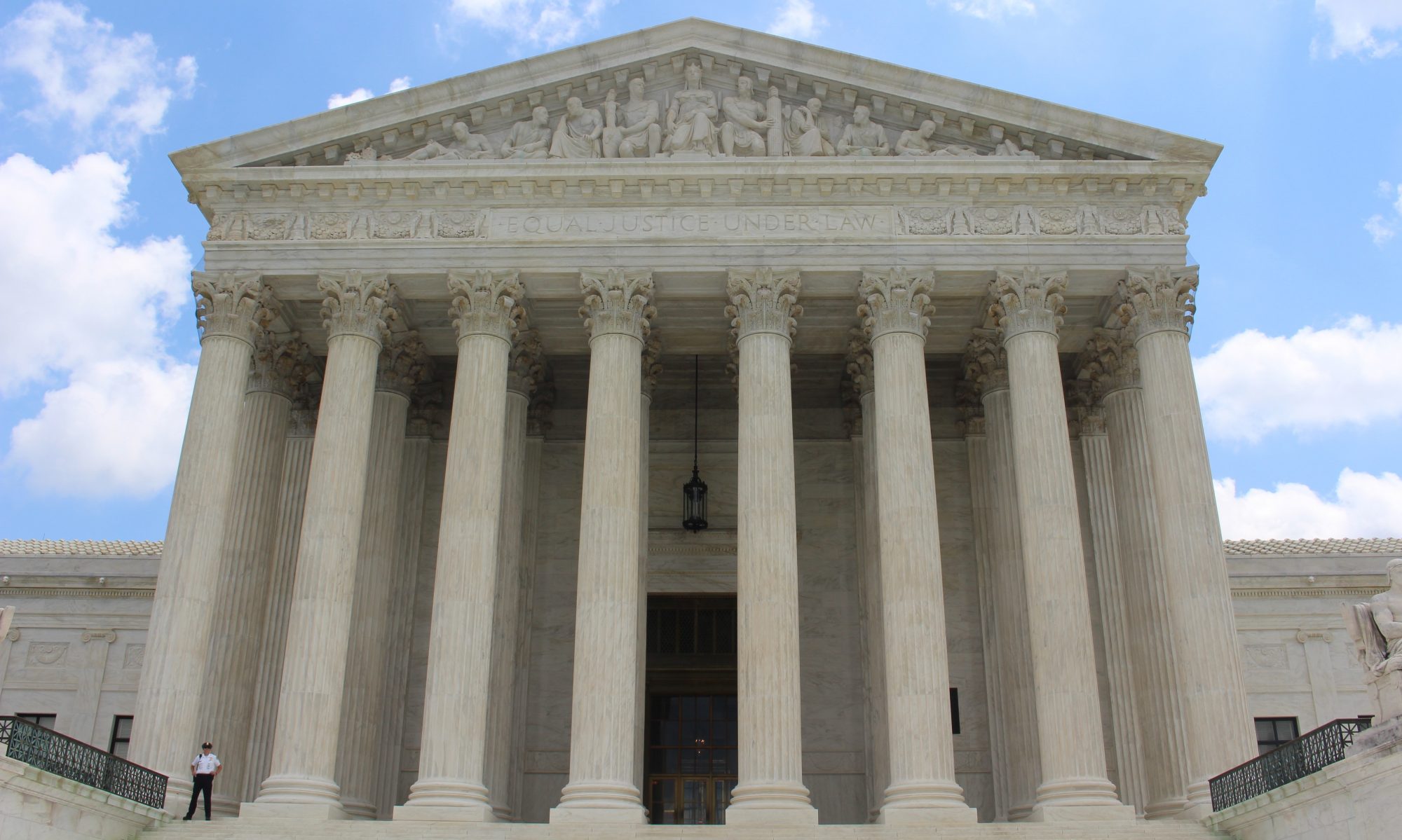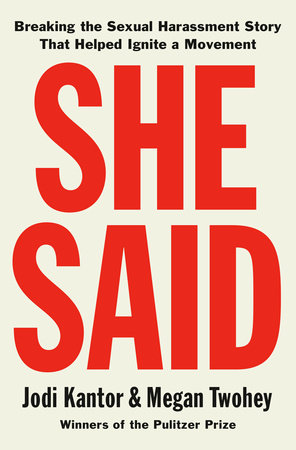C.A. Goldberg Victims’ Rights Law Firm is a New York law firm started by Carrie Goldberg that handles blackmail, extortion, sextortion, stalking an harassment, revenge porn, domestic violence, child victims rights, anti-abortion harassment, public figure crisis, Title IX, and deepfakes.
Equal Rights Advocates
Equal Rights Advocates provides legal resources and assistance to people experiencing sexual harassment in employment and at schools. They have Know Your Rights guides.
It’s On Us
It’s On Us is a movement dedicated to ending campus sexual assaults.

“It’s On Us was founded in September 2014 as an initiative of the Obama-Biden White House. The program launched following recommendations from the White House Task Force to Prevent Sexual Assault that noted the importance of calling everyone into the conversation on sexual assault prevention.”
Know Your Title IX
Know Your Title IX is a movement led by survivors and youth dedicated to empowering students to end sexual and dating violence in schools.

“Founded in 2013, Know Your IX is a survivor- and youth-led project of Advocates for Youth that aims to empower students to end sexual and dating violence in their schools. We envision a world in which all students can pursue their civil right to educations free from violence and harassment. We recognize that gender violence is both a cause of inequity and a consequence of it, and we believe that women, transgender, and gender non-conforming students will not have equality in education or opportunity until the violence ends. We draw upon the civil rights law Title IX as an alternative to the criminal legal system — one that is more just and responsive to the educational, emotional, financial, and stigmatic harms of violence.”
Online National Street Harassment Hotline
The Online National Street Harassment Hotline is a free, confidential, secure service that provides live help through the Stop Street Harassment website.
Department of Justice Public Service Announcement on Sexual Harassment in Housing
View the PSA here
The Hunting Ground (CNNFilms 2015)

This documentary focuses on sexual assault on college campuses and follows the stories of several assault survivors and their activism. Produced by Amy Zierling and distributed, ironically, by The Weinstein Company.
Jodi Kantor and Megan Twohey, She Said: Breaking the Sexual Harassment Story that Helped Ignite
New York Times investigative journalists Jodi Kantor and Megan Twohey have published She Said: Breaking the Sexual Harassment Story that Helped Ignite the Movement about their investigation and its consequences for the #MeToo movement.
Race-ing Justice, En-Gendering Power: Essays on Anita Hill, Clarence Thomas, and the Construction of Social Reality, edited by Toni Morrison (1993)
“It was perhaps the most wretchedly aspersive race and gender scandal of recent times: the dramatic testimony of Anita Hill at the Senate hearings on the confirmation of Clarence Thomas as Supreme Court Justice. Yet even as the televised proceedings shocked and galvanized viewers not only in this country but the world over, they cast a long shadow on essential issues that define America.
In Race-ing Justice, En-gendering Power, Toni Morrison contributes an introduction and brings together eighteen provocative essays, all but one written especially for this book, by prominent and distinguished academicians—black and white, male and female. These writings powerfully elucidate not only the racial and sexual but also the historical, political, cultural, legal, psychological, and linguistic aspects of a signal and revelatory moment in American history.
With contributions by:
Homi K. Bhabha, Margaret A. Burnham, Kimberlé Crenshaw, Paula Giddings, A. Leon Higginbotham, Jr., Claudia Brodsky Lacour, Wahneema Lubiano, Manning Marable, Nellie Y. McKay, Toni Morrison, Nell Irvin Painter, Gayle Pemberton, Andrew Ross, Christine Stansell, Carol M. Swain, Michael Thelwell, Kendall Thomas, Cornel West, Patricia J. Williams”
Anita Hill, Speaking Truth to Power (1998)
Anita Hill, Speaking Truth to Power (1998)
“After her astonishing testimony in the Clarence Thomas hearings, Anita Hill ceased to be a private citizen and became a public figure at the white-hot center of an intense national debate on how men and women relate to each other in the workplace. That debate led to ground-breaking court decisions and major shifts in corporate policies that have had a profound effect on our lives–and on Anita Hill’s life. Now, with remarkable insight and total candor, Anita Hill reflects on events before, during, and after the hearings, offering for the first time a complete account that sheds startling new light on this watershed event.
Only after reading her moving recollection of her childhood on her family’s Oklahoma farm can we fully appreciate the values that enabled her to withstand the harsh scrutiny she endured during the hearings and for years afterward. Only after reading her detailed narrative of the Senate Judiciary proceedings do we reach a new understanding of how Washington–and the media–rush to judgment. And only after discovering the personal toll of this wrenching ordeal, and how Hill copes, do we gain new respect for this extraordinary woman.
Here is a vitally important work that allows us to understand why Anita Hill did what she did, and thereby brings resolution to one of the most controversial episodes in our nation’s history.”


